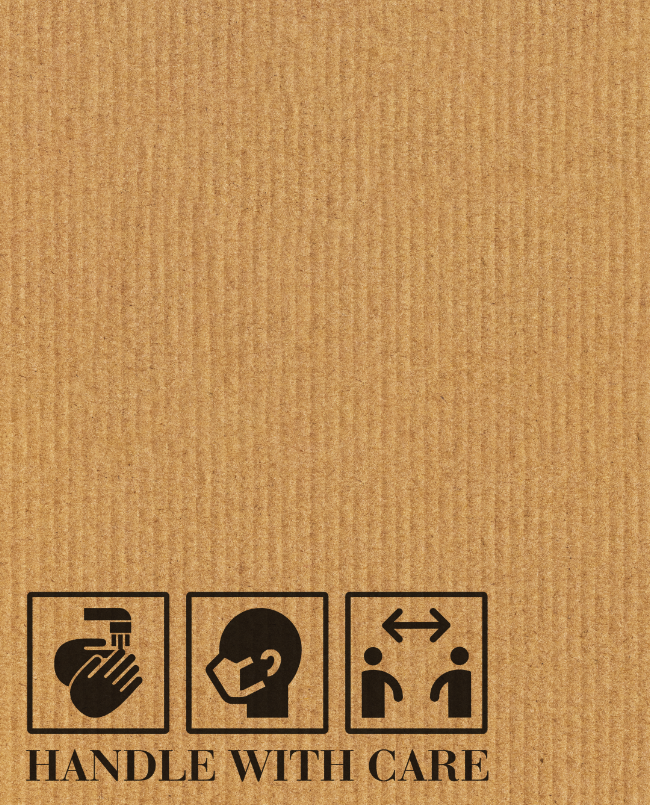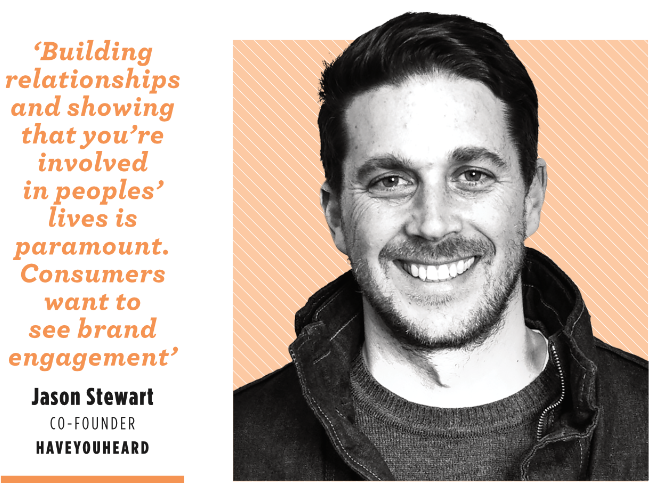You don’t need to be a brand expert to see the irony in a car manufacturer telling people not to drive and a tourism agency advising against visiting the very destination it promotes. Or an insurance company giving away free life cover to those who are particularly exposed to a deadly virus. Only a few months ago, these actions (by Toyota, South African Tourism and Old Mutual respectively) would have seemed counterproductive; reckless, even. But in today’s world they make perfect business sense.
The COVID-19 outbreak and resultant lockdown have demanded highly unusual business decisions. Across industries, technical advancements that were already under way are now being accelerated in the rush to create a low-contact economy, where strict distancing protocols contain the spread of the virus. Notable examples are e-commerce (Pick n Pay has partnered with the Bottles app for the home delivery of groceries), digital banking (Mastercard says contactless check-out payments were proportionally more than 10 times higher in March 2020 than March 2019) and telemedicine (Discovery has partnered with Vodacom to offer free virtual doctor consultations).
It’s still too early in the crisis to determine exactly which of the corporate COVID-19 responses are temporary shifts and which will constitute fundamental changes. The term ‘unprecedented’ has become ubiquitous with the pandemic, followed by ‘pivot’, which refers to the need for companies to shift, adapt or rotate their brand response – and sometimes their entire business model – to survive the economic and human disaster.
Many do this by repurposing their assets and expertise to create new value and protect their brands and workforce while they enter into maintenance and survival mode.
‘Brands with clear understanding of the difference that they make in peoples’ lives will find it easier to recognise the need to adapt and pivot their businesses to continue operating,’ says Carla Enslin, co-founder and head of strategy and new business development at Vega School. ‘There will be short-term adaptations – pivots – required to address stakeholders across all the existing and new contact points in ways previously unfamiliar or under-utilised for these businesses. For some enterprises these pivots could represent fundamental turnarounds in a world where distancing protocols profoundly affect us all. Whether fundamental or short term, any business with a clear purpose and direction will be able to communicate better, manage contact points better and emerge as a better business.’
Toyota’s Stay at Home commercial and South African Tourism’s message, ‘don’t travel now, so that you can travel later’, were just the start of the creative pandemic response. These short-term pivots were not aimed at selling products during lockdown but to provide an anxious nation with emotional support.
‘People expect brands to step up and lead during this difficult time, both in helping them on a day-to-day basis by adapting their products and services as well as communicating broadly about how they will work with them to set a path to a better future,’ according to COVID-19 brand research by Ipsos.
There are plenty of examples of this day-to-day help, such as Cape Union Mart converting its K-Way factory to produce two-layer face masks instead of outdoor clothing. Another example is SA Breweries ‘re-engineering’ its production from beer to hand sanitiser, which it donated to hospitals and schools.
‘If we think about the different phases of the pandemic, each has a different emotional motivation [such as fear, security, belonging, enjoyment, positivity] that advertising needs to address,’ notes Ipsos. Its paper, titled the Creative Fightback, lists these phases – pre-pandemic, preparation, adjustment and acclimation to opening up, re-start, new normal and post-pandemic – and concludes that ‘now more than ever, it is important to hear from brands to know what they stand for’.
It all comes down to purpose, or what Enslin calls holding your strategic north. ‘It’s crucial for brands to return to their purpose strategies to ensure that they are still “walking their talk” and delivering the unique value and meaning that they have intended from the start,’ she says.
‘In a crisis, it’s becoming so important to constantly – and in concrete ways – demonstrate why a particular brand matters.’ The question to ask is ‘are we genuinely adding value to people’s lives beyond communicating, beyond our advertising campaigns?’.
The current crisis presents brands with an opportunity to deliver on their raison d’être, according to Andisa Ntsubane, head of strategy at Old Mutual – a group with the purpose of ‘championing mutually positive futures’. He says that ‘African brands need to align their context, organisational capabilities, brand purpose and decide what role to play in support of relief efforts. This may also mean reviewing their pre-COVID-19 marketing plans and realigning their investments to initiatives that will create the biggest impact and relief for customers and the respective market’.
The pandemic is inspiring socially responsible behaviour, with financial institutions providing relief regarding insurance premiums and bond repayments, and many companies supporting SMEs as well as struggling customers and their communities.
Nahana Communications CEO Brett Morris finds that a growing number of his corporate clients have become more empathetic. ‘I think they are realising how their role as corporate citizens is more entwined in their brand than ever before,’ he says. ‘Marketing science has proven that our decision-making is predominantly intuitive and highly influenced by our emotions and what “feels right” at the time. So when a brand takes on a positive role as a corporate citizen, people respond to that and will likely form an emotional connection with that brand.’
Being a good corporate citizen should see a brand placing people and shared value at the core of its purpose-led COVID-19 response. For Old Mutual, this means, among others, backing front line healthcare workers in SA, Kenya and Zimbabwe with ‘free’ R4 billion life insurance cover; pledging customers premium relief and R40 million loans for SME clients; and supporting vulnerable communities with food, health and safety, and education programmes.
‘One of the most exciting pieces among the challenges has been the acceleration of our digital transformation project, and specifically the delivery of healthcare via telemedicine,’ says Ntsubane. New services include Meds on Wheels, launched in May in Kenya, for customers to order prescription medication, via WhatsApp or email, to be delivered to their doorstep. Also in Kenya, customers can access telecounselling for mental health, using phone and online video services, while they can use a new telemedicine service for online doctor consultations and prescriptions. ‘We’re exploring the extension of our online channels,’ he says. ‘We have a 24-hour help desk; now we’d like to introduce fully online face-to-face engagements with customers. Our research shows that for financial matters, people prefer face-to-face interaction with an adviser – that’s how they build trust – but this can also be done digitally. It’s not about moving entirely online but rather offering channels of choice.’

To earn their loyalty, brands need to show responsiveness, deliver, be relevant and be up to date, says Ntsubane. ‘The pandemic has led to the acceleration of omni-channel strategy implementation, and brands are increasing digital presence via online, mobile and social media. These access and touch points will only become more important as key engagement platforms.’
Bluegrass Digital, a provider of digital solutions for business, warns that SA companies don’t have an option – to survive, they must transform digitally, and this must happen fast. CEO Nick Durrant gives the example of Virgin Active and Planet Fitness, which began offering virtual workout classes immediately after having to close their gyms. ‘This clearly shows that having a strong social media brand and presence was a huge benefit for them,’ he says.
‘Digital transformation is largely about reinventing a customer experience. It will fundamentally change what “business as usual” looks like. Businesses that are digitally agile will require minor adaptations, but for the others it’s about survival.’
Enslin suggests companies review their most influential points of contact. ‘Every touch point influences what people think, feel and believe about a brand, and will obviously differ from business to business. But these touch points are living proof of how brands are actually serving and demonstrating their purpose.’ Even the short-term touch points matter, she says.
‘They demonstrate that the brand is present, continues to deliver its products and services to the best of its ability and is actively contributing in a time of need. Fundamental shifts over the long term occur when a new or better way to serve the brand purpose emerges.’
However the future may pan out, brands need to be present for consumers. ‘Building relationships and showing that you’re involved in peoples’ lives is paramount. Consumers want to see brand engagement,’ says Jason Stewart, co-founder of communications agency HaveYouHeard. ‘Brands are fighting for less attention in an ever-growing, cluttered and distracted space. It’s hard to say what changes will be cemented into consumer behaviour long term, but what is evident is that digital is now imperative and so are real, human connections. These are the areas that were programmed for growth before the pandemic but are now going to be more important.’
He explains that COVID-19 has changed the decision-making algorithm, with a new formula slowly being defined based on the life experience and financial resources available to cash-strapped consumers now.
‘Cost has always been a factor but will be even more important now, and we will see consumers making more purchase decisions based on perceived value. Understanding what that value is to a consumer is imperative and not always explicitly even known by consumers themselves. It may be tangible benefits, such as a physical product to be stretched further, or intangibles, such as status, belonging or peace of mind.’
Or it could be an enhanced customer experience. The closer companies listen to their customers, the better they will be able to serve their needs in the post-COVID-19 economy, which is likely to have more emphasis on health, and be increasingly contactless and online. The key message to brands is not to ‘go dark’ during the crisis – don’t stop communicating, and always keep the bigger picture in mind: your purpose or your ‘north’.
Those that put their customers and the country first today will benefit tomorrow, says Stewart. And when this is all over, South Africans will look back and remember which brands stepped up.









